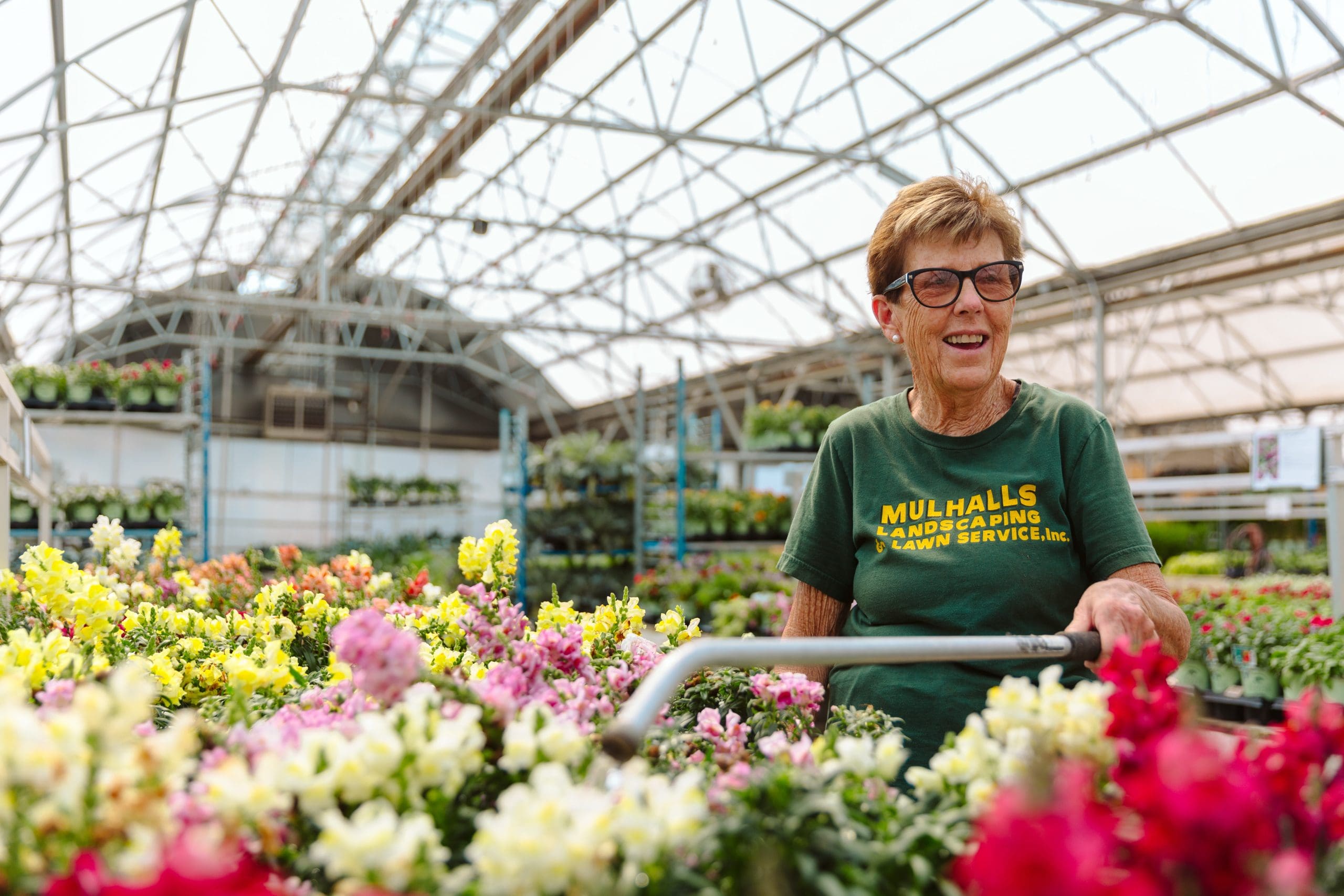
The lawn and landscape industry has traditionally been a male-dominated workforce. As that changes, there are numerous facets of the workforce that need to be considered to create a more welcoming place for women employees.
The best way to improve is to seek feedback from your female employees and learn where your company can enhance policies or practices.
“Something I’ve seen change over the eight years I’ve been here is that we’re having the important conversations about inclusivity, gender bias, and what it’s like to be a woman in a male-dominated industry,” says Dana Leehy, logistics manager for Mulhall’s, based in Omaha, Nebraska. “By having these conversations, we’re building allies and support across the organization to create space for other important DEI conversations to happen, too.”
Below are some of the key operational factors that can help your female team members feel more comfortable on the job.
Uniforms and Equipment
Comfort is key, and this can be as basic as opting to provide your uniforms in women’s sizes.
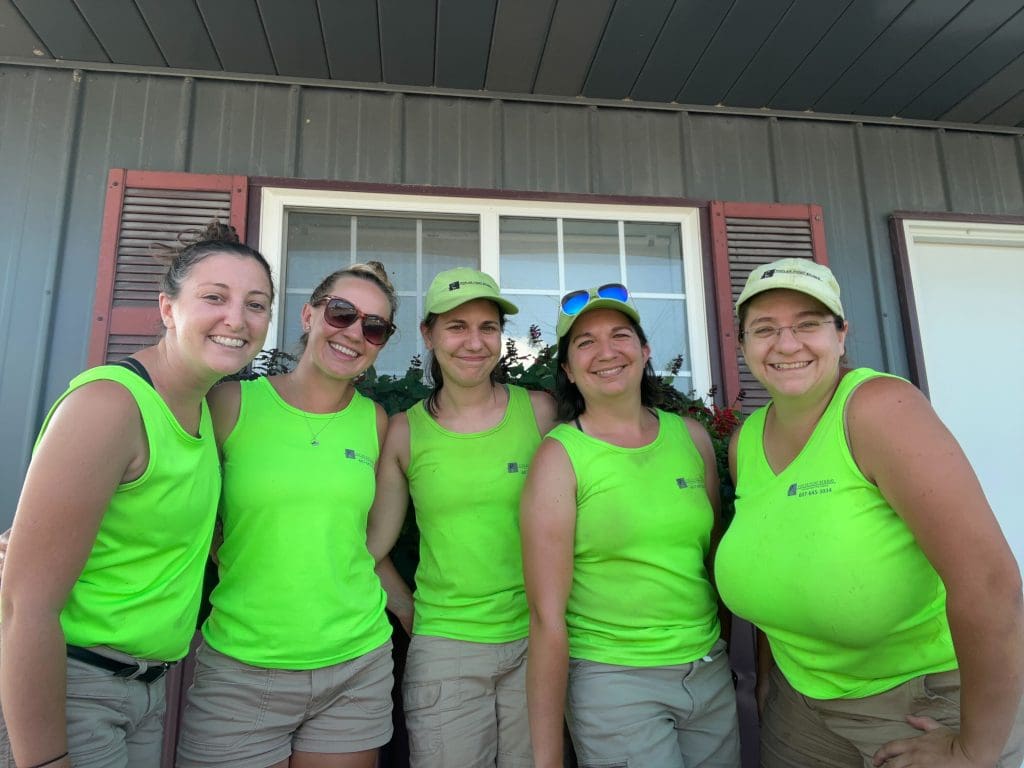
“In the past, uniforms were traditionally unisex, but over the years, we have learned from employee feedback and now offer men’s and women’s sizes, various styles and cuts of clothing depending on individual preference,” says Kalee Robbins, maintenance division manager/lead gardener for Poplar Point Studio, based in Moravia, New York.
Leigh McGonagle, CEO of Poplar Point Studio, adds that this year they are providing at $100 stipend for team members to use for boots or other uniform pieces, including apparel companies designed by and for women such as Dovetail Workwear, Duluth Trading, Ororo Wear, and Red Ant Pants.
Companies like Russell Landscape Group, based in Sugar Hill, Georgia, and McHale Landscape Design, Inc., based in Upper Marlboro, Maryland, also make a point to provide pants and shirts in women’s sizes and styles.
“A few of the females on our admin staff are in charge of ordering uniforms, and we order specific to each teammate on our admin team,” Mike Sanders, president of Crimson Valley Landscaping, based in Rockford, Illinois. “We have a uniform company that services our field staff and they provide both male and female uniforms.”
McGonagle says she is also very conscious about purchasing tools that are “right-sized” or there are at least options that team members of different abilities can use comfortably. This includes everything from pruners for different hand sizes and shorter-length shovels to more lightweight power equipment. She says they also look to add running boards or handles for taller vehicles and opt for mid-size trucks instead ¾ ton or cargo trucks for the garden maintenance vehicles.
“This lets predominantly shorter drivers feel more comfortable and safe operating in rural as well as urban environments,” McGonagle says.
Access to Restroom Facilities
While it may not sound like a pressing topic, access to bathrooms for women should not be handwaved away.
“The shop in Charleston has two bathrooms and one is ‘saved’ for me,” says Sara Burks, branch administrator of Charleston, Savannah and Nashville for Russell Landscape Group. “It has a lock and key code on it so that not everyone can use it. However, I think that if I was out in the field working on a truck, my answer would be to go to a gas station. This is an area that we can improve on. We can make sure the routes all have a female-friendly bathroom option so that we are not forcing the ladies to just ‘figure it out.’”
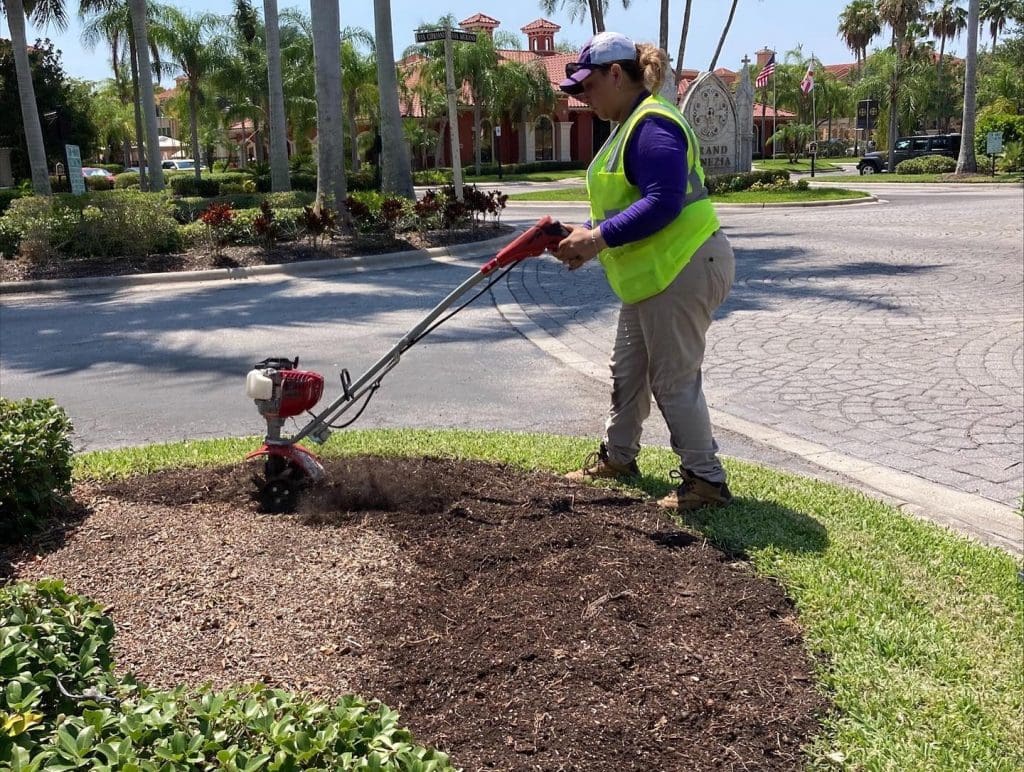
Julie Patronik, director of marketing and public relations for McHale, says they have different setups depending on the location. They have separate women’s facilities at their corporate headquarters, while the satellite offices have unisex bathrooms.
“In the field, our larger jobs have port-a-johns on site,” Patronik says. “Small installations and maintenance crews rely on the same bathrooms the men use and stop at public facilities when needed.”
Robbins says they discuss access to restrooms as early as the interview process so they are transparent and honest before hiring.
“Before staff leave the shop for the day, their calendar invite will include the best public restrooms to stop at along the way, as well as making sure the ‘pee tent’ is packed in each fleet vehicle, in case of emergencies,” Robbins says.
She explains that this knowledge ahead of time provides peace of mind for females worried about factors such as their period or an upset stomach. Poplar Point Studio also makes it clear to both the men and women on the team that if they need to go use the bathroom, they are able to leave a client’s property as not every woman will feel comfortable with the ‘pee tent.’
Schedule Flexibility
Another major consideration for women working is flexibility with their schedules.
“The number one need for women is to feel secure,” says Adrienne Stutz, Destin branch manager for Russell Landscape Group. “Our first core value is Faith and Family. Nothing is more appealing to a woman than being part of a family and being encouraged to take care of her family first.”
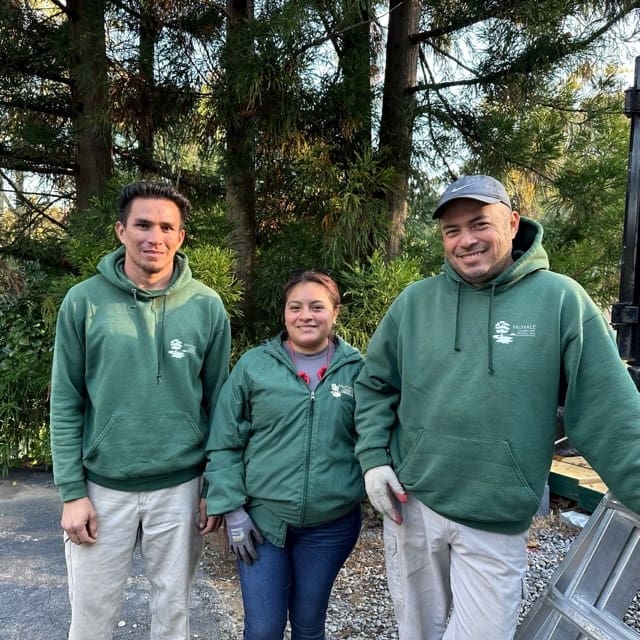
Russell Landscape Group doesn’t have paid maternity leave but they do participate in the Family and Medical Leave Act (FMLA). They also allow office staff to work from home as needed. Burks says she plans to take advantage of this herself after giving birth in September and is thankful to have this option with the company.
Patronik says McHale has competitive PTO and also uses FMLA. They are flexible with their working parents and she says she started with the company herself 25 years ago as a working mother of two toddlers.
Mulhall’s offers four weeks of paid leave as well as company-paid short-term disability. They are intentional about the challenging balance between parenthood and building a career.
“Because we realize the importance of secure attachments in a child’s development, we offer an Infants at Work Program, where office-based team members have the opportunity to bring their infants to work between the age of six weeks to six months,” says Meray Kim, engagement + training manager for Mulhall’s. “From an engagement perspective, there’s an amazing benefit to having babies in the office. It lifts everyone’s mood!”
Poplar Point Studio hasn’t had anyone on maternity leave yet, but they acknowledge they need to create a proactive plan for the future. Alison Falkenburgh, container division manager/lead gardener for Poplar Point Studio, says being flexible with scheduling has been a big attractor for both working moms and dads.
“The majority of the time, the moms are the parents in the relationship that need to stay home with children on school days off or due to illness,” Falkenburgh says. “We offer flexibility in allowing moms to not have to stress about missing workdays in order to care for their children. We still do have boundaries, however, we do not want moms (or dads) to have to worry about not being able to be home with their children when needed.”
Sexual Harassment Training
Some companies like Crimson Valley and McHale have not found a need to implement specific sexual harassment training.
“We have a very respectful group of people and haven’t thought this necessary,” Sanders says. “We do have a sexual harassment training program in place, just like we do safety, and standard operating procedure trainings and manuals.”
At Russell Landscape Group, they offer two courses through Russell Landscape University. One is for employees and it outlines how to identify sexual harassment and the other is for managers on how to handle sexual harassment allegations.
“Any individual who believes that he or she is being subjected to sexual harassment or intimidation, or who knows about it happening to others should, without fear of reprisal, promptly report the incident to Human Resources,” says Dianne Savage, HR manager for Russell Landscape Group. “Each complaint of sexual harassment will be carefully investigated and where appropriate, corrective action will be taken. All such reports will be treated in the strictest confidence possible.”
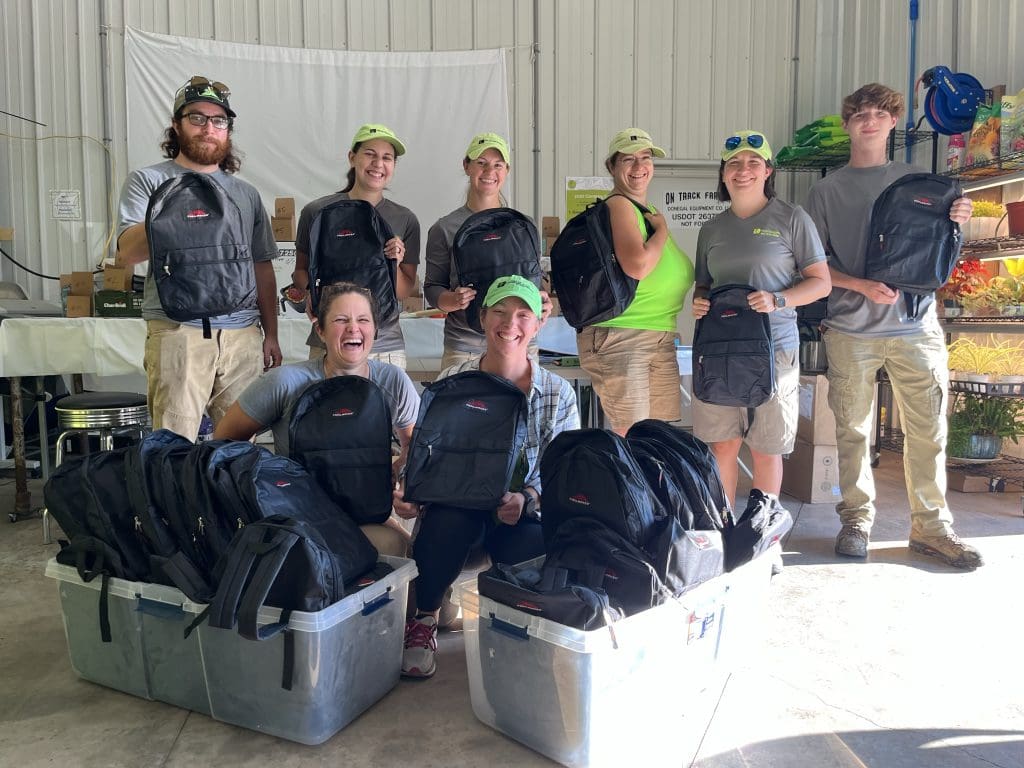
Similarly, Mulhall’s trains their crew leaders on how to spot sexual harassment, how to handle conversations about it and empower them to keep the people on their crews accountable. Poplar Point Studio conducts mandatory sexual harassment training annually before the start of the season.
“All staff do a wonderful job of setting the example of inclusive language, actions and intent, especially when welcoming and respecting employees who wish to be addressed in a less traditional way,” Robbins says. “We are not perfect, but all staff are understanding, try, and correct our mistakes if/when they happen.”
McGonagle says they haven’t had any major issues with harassment and language, which she credits to their hiring process and shared values. A bigger issue has been working alongside subcontractors who do not have the same training or language expectations.
“As we’ve grown, we have stopped working with firms and contractors who aren’t aligned with the same values on how to treat employees and staff,” McGonagle says.
Access the NALP Foundation’s toolkits on the best ways to recruit and retain a diverse workforce.

